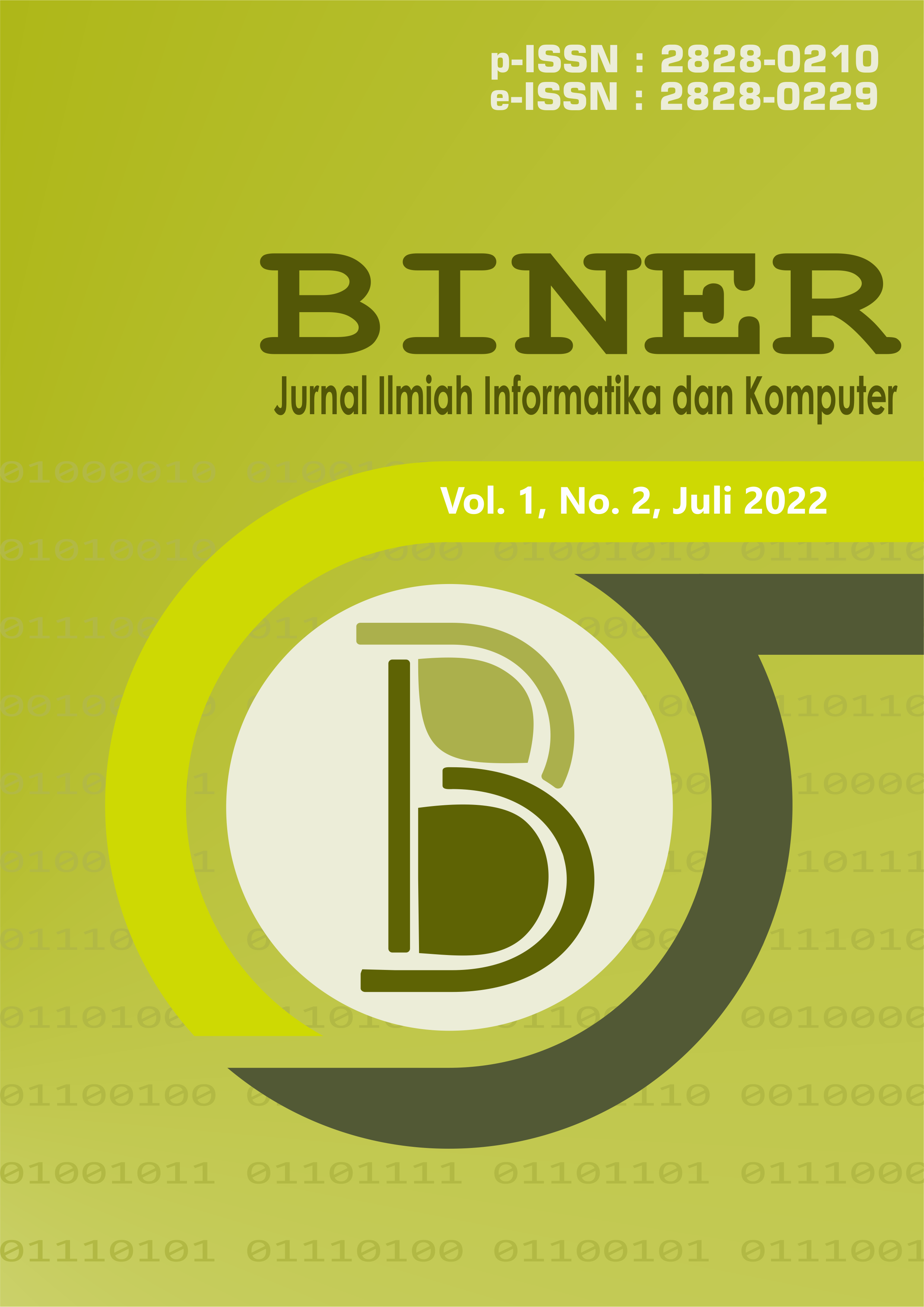MOTORCYCLE RENTAL SMART SYSTEM DESIGN
Case Study in UNIDA Gontor Business Unit
DOI:
https://doi.org/10.32699/biner.v1i2.3140Keywords:
smart system, motorcycle rental, php, yii2, gontorAbstract
The need for transportation in the University of Darussalam Gontor (UNIDA Gontor) campus is currently in high demand. Therefore, the campus has provided motorbike rental services in the UNIDA Gontor Business Unit (U3) section of motorbike rental or U3 Motor. The problem in motorcycle rental management at U3 Motor at this time is the recording of rental transactions which still uses a manual system by recording in a notebook and then entering the data into Excel format. By looking at these facts, the researchers designed a smart information system for motorbike rental. This study aims to facilitate the reservation process for those who will rent a motorbike at U3 Motor. In addition, this smart system will facilitate the management of U3 UNIDA Gontor in managing transaction data and recording the circulation of incoming money obtained from the reservation process. This system design method uses the Software Development Life Cycle (SDLC) waterfall model which consists of several stages, which are requirements, analysis, design, implementation, and testing. The design of the data process design uses Use Case Diagrams and Data Flow Diagrams. While the database design uses Conceptual Data Model (CDM) and Physical Data Model (PDM). This system was developed using PHP programming language with yii2 framework and database using MySQL. Testing of this system is carried out using the black-box method on front-end and back-end applications. The test results on each page and function show that the system can work as expected. The results of this study indicate that the smart motorbike rental system is feasible to use to manage transaction data and record the circulation of incoming money obtained from the reservation process and is feasible to be developed to support the urban smart system network.
Downloads
References
[2] E. Prasetyo, “Rancang Bangun Sistem Informasi Sekolah Tinggi Ilmu Ekonomi Rahmanyah Kabupaten Musi Banyuasin Berbasis Website,” J. Informanika, vol. 1, no. 2, pp. 19–30, 2015.
[3] R. Hidayat, Cara Praktis Membangun Website Gratis. Jakarta: Elex Media Komputindo, 2010.
[4] G. B. Shelly, Menjelajahi Dunia Komputer, 3rd ed. Jakarta: Salemba Infotek, 2012.
[5] R. H. Sianipar, “Menbangun Web dengan PHP & Mysql Untuk Pemula & Programmer,” Inform. Bandung, 2015.
[6] Budi Raharjo, Belajar Otodidak Framework Yii : Pemrograman Web dengan PHP dan Framework yii. Bandung: Informatika Bandung, 2015.
[7] A. Rahmawati, R. Kridalukmana, and I. P. Windasari, “Pembuatan Sistem Informasi Rental Mobil dengan Menggunakan Java dan Mysql,” J. Teknol. dan Sist. Komput., vol. 3, no. 3, pp. 335–342, Aug. 2015, [Online]. Available: https://jtsiskom.undip.ac.id/article/view/12102.
[8] R. Aditama, Sistem Informasi Akademik Kampus Berbasis Web dengan PHP. Yogyakarta: Lokomedia, 2012.
[9] Abdul Muid, “Aplikasi E-Voting Terhapad Pemilihan Presiden Badan Eksekutif Mahasiswa Universitas Islam Lamongan,” JTIIES, vol. 1, no. 1, pp. 39–46, 2017, [Online]. Available: https://jurnalteknik.unisla.ac.id/index.php/JTIIES/article/view/99/62.
Downloads
Published
Issue
Section
License

This work is licensed under a Creative Commons Attribution-ShareAlike 4.0 International License.
An author who publishes in this Journal agrees to the following terms:
- Author retains the copyright and grants the journal the right of first publication of the work simultaneously licensed under the Creative Commons Attribution-ShareAlike 4.0 License that allows others to share the work with an acknowledgement of the work's authorship and initial publication in this journal
- Author is able to enter into separate, additional contractual arrangements for the non-exclusive distribution of the journal's published version of the work (e.g., post it to an institutional repository or publish it in a book) with the acknowledgement of its initial publication in this journal.
- Author is permitted and encouraged to post his/her work online (e.g., in institutional repositories or on their website) prior to and during the submission process, as it can lead to productive exchanges, as well as earlier and greater citation of the published work (See The Effect of Open Access).















